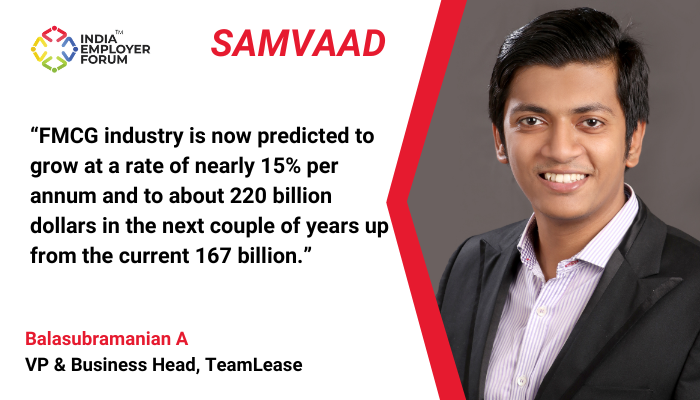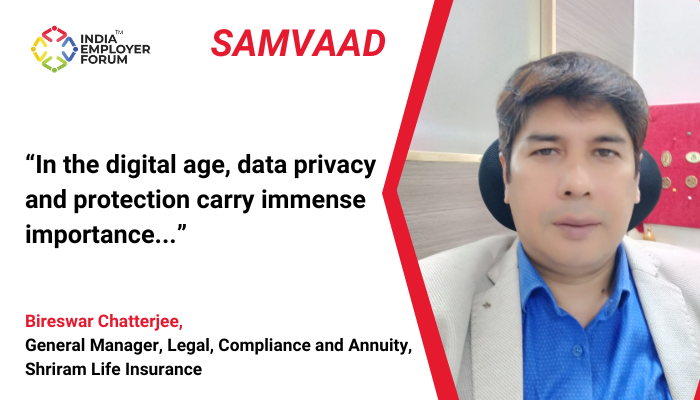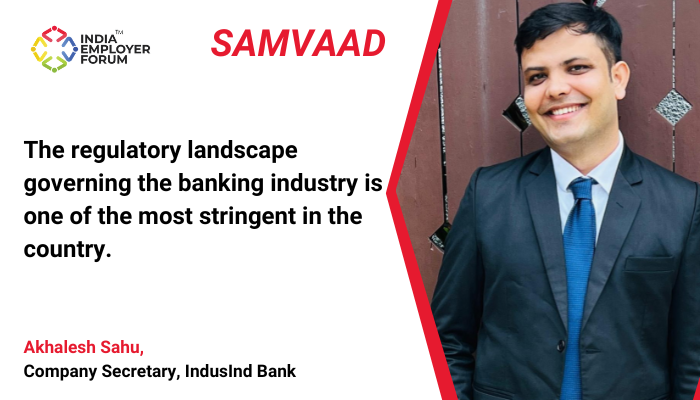Naga Siddharth, CHRO & Head Teacher Excellence at Vedantu Innovations Pvt. Ltd., is of the view that originality gets stunted in a mad rush to create replicas
Q. Please tell us something about yourself. What have been the key highlights in your career?
I took up HR by choice after engineering. My career has offered me an opportunity to work across industries, at the depth that being a HR consultant wouldn’t have given me. Helping businesses succeed through people and facilitating the context to make that happen is something I have done in my career.
My book on HR Design and Analytics was foreworded by Dr. Marshall Goldsmith who called it “revolutionary and ground breaking” and that such work happens once in a “long time, a very long time”.
Dr. Udai Pareek gave me an opportunity to co-author a CD with him on psychometrics. After he passed away, I saw the book in a bookstore. When I opened it, I saw that he had acknowledged my contribution in a full paragraph. Those are the values I, well, value.
Q. Any awards/achievements that you would want to share with us?
There are two awards that I am most proud of. One was the SHRM Future Bytes Winner of 2013 which was a contest to identify future trends in workforce and workplace. As and when I see my predictions from 2013 come true, I revel in a secret smile to myself. I had predicted Gig workforce (though I didn’t know that term then) and quite a few other areas about the workspace (workspace = workforce + workplace).
The second one was the NHRD Bangalore and NHRD Mumbai National Conference award on the best HR workplace practices that had a business impact. That was a huge validation for the approach and innovatively impactful work done by my HR team at Cloudnine, and also a validation that Healthcare HR needed to go beyond what was largely seen as payroll+IR. Many of those practices are being adopted by the large hospital chains till today and that makes me smile too. What I value are moments when I am able to touch lives positively.
Q. How can HR help create world class organizations in today’s context of evolving world of jobs?
HR needs to orchestrate, facilitate and help leadership create organizations that could be seen as best in class. Every context is different, and an organic approach to accept present reality and provide authentically designed solutions are imperative to creating such organizations. There is a propensity today to blindly copy organizations that have a large valuation or have made great profits, use the same rules of thumb and create scale. Isn’t that inherently self limiting and just creating replicas? Where is originality that created such success stories in the first place? Can we instead try to find out the thinking that made such organizations what they are and use that contextually to make your own organization greater. Why settle for 10x when 100x is possible with a little more focussed intent and work?
Q. In the context of the future of work, what new roles do you see emerging in the HR function?
Data science and business analysts are already in. I no longer hire an HR Ops profile who is good in excel for doing my data analyst role. We are looking at pure data analysts who can use data science tools to give insights. What we would need would be artificial intelligence and machine learning professionals who can customise employee experience for delight and potential maximization.
The other set of professionals would be individuals who can work with empathy and help individuals reprogram their own lives.
The third set would be business leaders who would like to actively mentor leaders inside the organization. I do not mean executive coaches. These would be fairly successful leaders who are there to observe and mentor fast growing leaders.
You might also be interested to read: ‘Skill Sets Require A Complete Overhaul’ – Srikanth Karra, CHRO, Mphasis
Q. How should HR professionals prepare themselves to remain relevant?
1. Don’t just talk about AI and machine learning, instead do a course and learn a few tools.
2. Network with business leaders. Most of their needs are simple and basic. Put the business on centre stage.
3. Spend time with young business leaders. In many contexts, wheels are constantly being reinvented and rewarded. Civilizational learning and evolution isn’t.
4. Wake up daily and check if the growth mindset mode is switched on in the mind. If not, turn it on. Humility to learn for oneself is the one elixir that lasts a lifetime.
5. Think, research and learn. Have your own point of view that makes sense for you and others.
Q. What’s your view on the mega global trends in HR?
India is a different country and hence I don’t believe in copy pasting global trends. Indian HR with its roots in the HRD movement is beyond a transactional approach. It’s about creating possibilities for individuals and creating organizations that outperform themselves constantly.
Global is good. Global isn’t the only good. Learn what’s happening globally. Reflect on and adapt whatever is relevant locally.
Q. How does one ensure quality of hires in a business in the context of gig economy?
By first knowing what is it that I am looking for. Where am I coming from when I ask for a particular aspect of the job specification? Defining that, is the crux. Defining clearly and making it contextual to a gig role is important. This will take care of quality of selected hires.
To make them stay and thrive, don’t hire gig roles in a high context organization that requires too much of effort in knowing people and building relationships. Use the roles with discretion and thought.
To make your organization an attractive proposition, create a culture that supports the growth of the gig workforce. Help employees do what makes them perform at their best.
Q. Today, we see people everywhere but employability remains elusive, why?
1. We do not have a universal skill set dictionary. Without that, defining skills needed and then assessing individuals is impossible. Without the constructs in place, employability will remain dependant on serendipity.
2. The second reason is that opportunities are urban and employability training happens rurally. Creating facilities in suburbs and having convenient transport would help decongest cities and drive up employment.
3. The third reason is the obsession of employees coming to the office to work. Creating VR technology that would help individuals tend to fields in the morning and work for a customer service centre in the evening is the possibility we have to create.
4. And finally, employability needs to go beyond getting a job. How are we recognizing the lakhs of professionals who are self employed? Are we holding on to the right metric?
Q. You have been active in NHRD and other forums? You write as well. How do you prioritise and what drives you?
I am in this profession out of choice. Because it’s purposeful, it’s not about how much is done or achieved. It’s about purposeful activity.
Q. What’s your success mantra?
“Stop trying to Cure. Try caring instead.”
I learnt this from a Buddhist monk Ven. Ajahn Brahm. He was telling us a story on how a young doctor was so dejected after he lost a patient. The doctor was all bothered about curing the patient while what he was supposed to do was to care for his patients. Often, an achievement led culture is mistaken as being all about fixing things, in particular fixing people around you. As professionals, can we take a breath and start caring?
About Naga Siddharth
CHRO and Head Teacher Excellence, Vedantu Innovations Pvt. LtdNaga Siddharth is presently CHRO and Head Teacher Excellence at Vedantu Innovations Pvt. Ltd. The company is in the space of EdTech and is backed by Tiger, Accel, Omidyar, TAL, among others. In his career, Naga Siddharth has helped scale, build and accelerate organizations in the domains of aviation, information technology (services, product, cloud, support), healthcare, startups, retail and real estate.
Naga Siddharth is a credentialled Executive Coach (PCC, ICF), a member of the International Association of Facilitators and an author of psychometric tools. He has used design thinking for HR initiatives helping drive measurable business outcomes such as sales.
An author and researcher, four of his books are sold on Amazon. He has published based on action research in areas of flow, roles, stress, organization citizenship behaviours. In 2017, he was recognized as a 40 under 40 HR leader.




